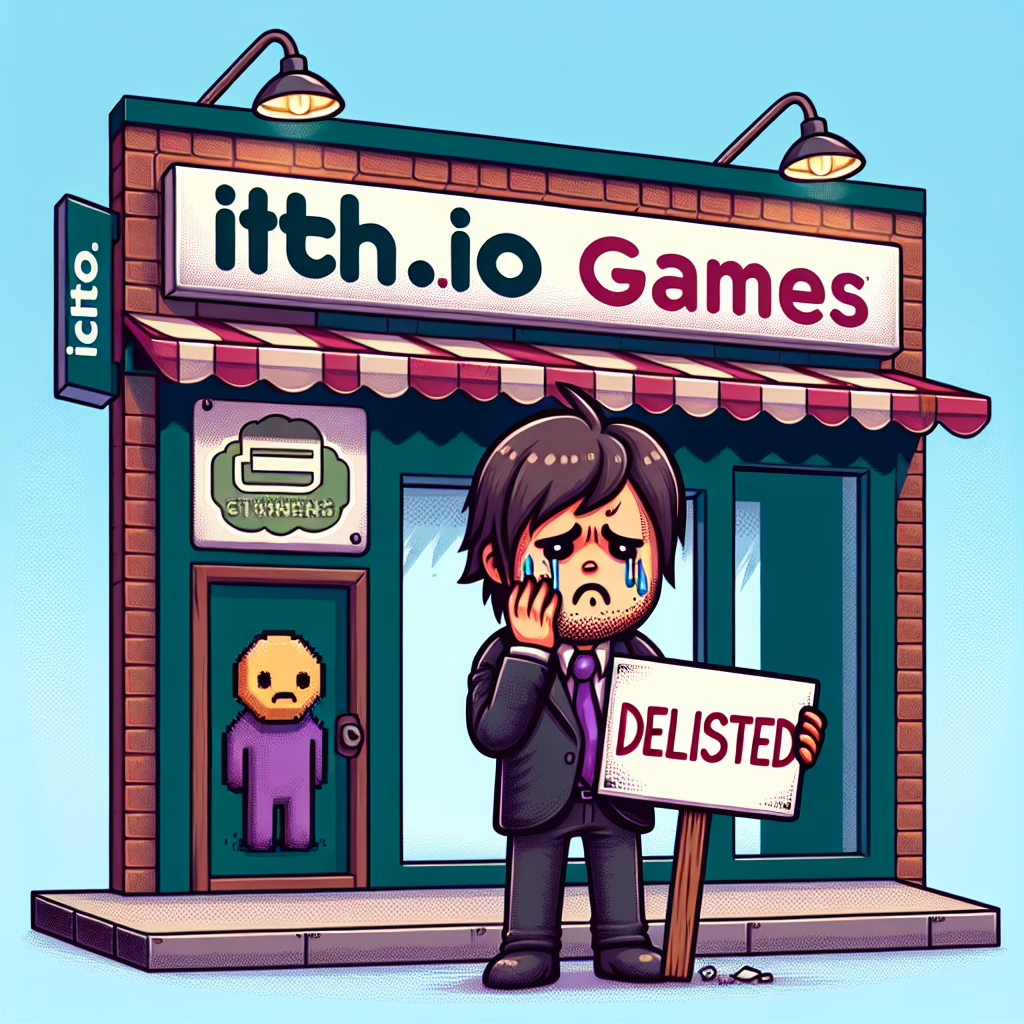Ah, the world of indie gaming! A realm where creativity reigns supreme, and the only limit is your imagination—or, in some cases, your payment processor. Recent news about Itch.io games facing delisting due to payment processor issues has sent ripples through the community. But fear not, dear gamers and creators! Let’s dive into this drama with a sprinkle of humor and a dash of insight.
The Great Payment Processor Conundrum
In a twist worthy of a soap opera, Itch.io recently announced that some of its beloved indie games might disappear faster than your last pizza slice at a game night. This unfortunate situation arises from challenges with their payment processor, PayPal. Yes, you heard it right! PayPal—the digital wallet that’s as popular as pineapple on pizza (which, by the way, should be illegal).
So what does this mean for our brave indie developers? Well, if their titles don’t comply with certain guidelines set by PayPal, they face the dreaded delisting from Itch.io. This is akin to being kicked out of the coolest club in town for forgetting to wear shoes. Talk about harsh!
The Ripple Effect on Indie Developers
For many indie developers, Itch.io is not just a platform; it’s a lifeline. The ability to showcase their work and connect with gamers globally is invaluable. Losing access to this platform means losing visibility and potential sales—like trying to sell ice cream in Antarctica! Furthermore, it could dissuade new creators from taking the plunge into game development. After all, who wants to invest time and resources into a project that could vanish into thin air?
This delisting doesn’t only impact developers; it also sends shockwaves through the gaming community. Gamers love discovering hidden gems on Itch.io—those quirky titles that make you laugh, cry, or question your life choices! If these games are removed from the site, where will we find our next obsession?
Why PayPal? Why Now?
Now, you might be wondering why PayPal is playing the villain in this narrative. Well, it turns out that payment processors like PayPal have strict rules about what types of content can be sold through their platforms. This includes guidelines around adult content and other sensitive materials. So when an indie game dares to push boundaries or explore unconventional themes, it risks running afoul of these policies.
Imagine a world where all quirky games are banished! We might as well replace our consoles with knitting needles! Thankfully, Itch.io has been proactive in addressing these concerns and working directly with developers to navigate these choppy waters.
Community Support: The Hero We Need
As always, when adversity strikes in the gaming world, the community rises to support its own. Fellow developers and gamers have rallied together on social media platforms to voice their concerns and support those facing delisting. There’s something beautiful about seeing people unite over shared passions—even if it’s just to argue about whether chocolate or vanilla is better!
This community support can be a game-changer (pun intended!). By amplifying the voices of affected developers, they can raise awareness and encourage changes within payment processing policies. Who knows? Maybe one day we’ll see a world where PayPal embraces all types of creative expression without fear of backlash.
The Future of Indie Gaming on Itch.io
While we hope for swift resolutions to these payment processor dilemmas, it’s essential for both gamers and developers to stay informed about changes on platforms like Itch.io. Understanding how payment processors operate can empower creators and consumers alike. Plus, it gives us great material for our next trivia night!
It’s also wise for indie developers to explore alternative payment options beyond PayPal—like Stripe or Patreon—so they won’t feel as trapped as a character in a poorly written RPG plotline.
Conclusion: Keep Gaming Strong!
The recent Itch.io games delisting saga reminds us that while technology can sometimes feel like an obstacle course designed by an evil genius, our passion for gaming—and supporting indie developers—should never waver. As we navigate these waters together, let’s keep our spirits high and our consoles charged.
What are your thoughts on this situation? Have you experienced any issues while supporting indie games? Share your experiences below!
Special thanks to The Verge for shedding light on this important topic!

